Are you considering leasing commercial space but unsure where to start? Crafting the perfect letter to present your tenant offer can make all the difference in sealing the deal. From highlighting the unique benefits of your proposal to addressing the landlord's concerns, the right approach can set you apart in a competitive market. Keep reading to discover our handy template that will help you create a compelling offer!

Tenant Information and Background
The commercial real estate tenant information and background section should provide a comprehensive overview of the prospective tenant's business operations, history, and financial stability. Key details include the company's founding year, indicating longevity, as well as annual revenue figures to underscore economic viability. The industry sector should be highlighted, specifying whether it operates in technology, retail, or manufacturing, for instance. The tenant's previous leasing experiences, such as locations (New York City, San Francisco) and the duration of leases, can demonstrate reliability. Additionally, any notable partnerships or client lists may enhance credibility, while a summary of workforce numbers reflects operational scale, providing landlords insight into the tenant's operational capacity and potential footprint within the leased space. Overall, this background not only establishes the tenant's profile but also aids property owners in assessing compatibility with their real estate offerings.
Property Description and Location
Prime commercial property located in downtown Miami, a vibrant urban center renowned for its dynamic economy, diverse culture, and thriving business environment. This 5,000 square foot retail space features modern amenities, large display windows, and high ceilings, ideal for showcasing merchandise. Situated near the bustling Bayside Marketplace and adjacent to major transit hubs, including the Metromover and public bus lines, offers high foot traffic and visibility. Proximity to key landmarks like the American Airlines Arena and the Port of Miami enhances the potential for attracting a diverse clientele. Ample parking facilities and easy access to major highways, including I-95, further increase the location's appeal for businesses seeking a strategic presence in South Florida's competitive market.
Lease Terms and Conditions
A commercial real estate tenant offer typically includes significant details such as lease duration, rental rate, and property address. The lease duration can span various lengths, for instance, a three-year term with options for renewal. The rental rate may be expressed in terms of square footage, for example, $25 per square foot annually for a 1,500 square foot office located in downtown San Francisco. Key conditions often encompass security deposits, maintenance responsibilities, and tenant improvements, which could involve up to $50,000 for customizing the space to fit operational needs. Additionally, notice periods for lease termination, typically 60 days, along with permissible modifications to the premises and compliance with local building codes, are crucial elements to incorporate into lease agreements.
Financial Proposal and Rent Structure
The financial proposal for a commercial real estate tenant offer outlines the rent structure, including base rent rates, additional costs, and payment terms. The base rent, typically quoted on a per square foot basis, reflects the overall price for leasing a specific area (e.g., 2,000 square feet office space) within the property located at 123 Main Street, Springfield. Additional costs may include property taxes, maintenance fees, and utilities, which can vary significantly depending on lease terms and market conditions. Payment terms detail the frequency of rent payments (e.g., monthly or quarterly), payment methods (bank transfer or check), and security deposit requirements, which often amount to one or two months' rent. This comprehensive financial proposal ensures clarity for both the tenant and landlord regarding financial obligations throughout the lease duration.
Additional Clauses and Contingencies
A comprehensive commercial real estate tenant offer should include additional clauses and contingencies to protect both parties. Clauses such as a tenant improvement allowance specify the landlord's financial contribution for renovations, facilitating custom adaptations to the space. A termination clause provides an exit strategy if business circumstances change, ensuring flexibility for the tenant, typically set within a 90-day notice period. An exclusivity clause may prevent the landlord from renting to competing businesses, safeguarding the tenant's market position. Contingencies might include securing financing or passing inspections; for instance, a financing contingency may require the tenant to obtain a loan by a specific date to finalize the lease, thereby preventing potential financial strain. Additionally, compliance with local zoning regulations can be included, ensuring the property meets legal usage formats crucial for business operations. These nuanced details enhance the offer's robustness, creating clarity and security for both landlord and tenant.
Letter Template For Commercial Real Estate Tenant Offer Samples
Letter template of preliminary offer for commercial real estate tenants.
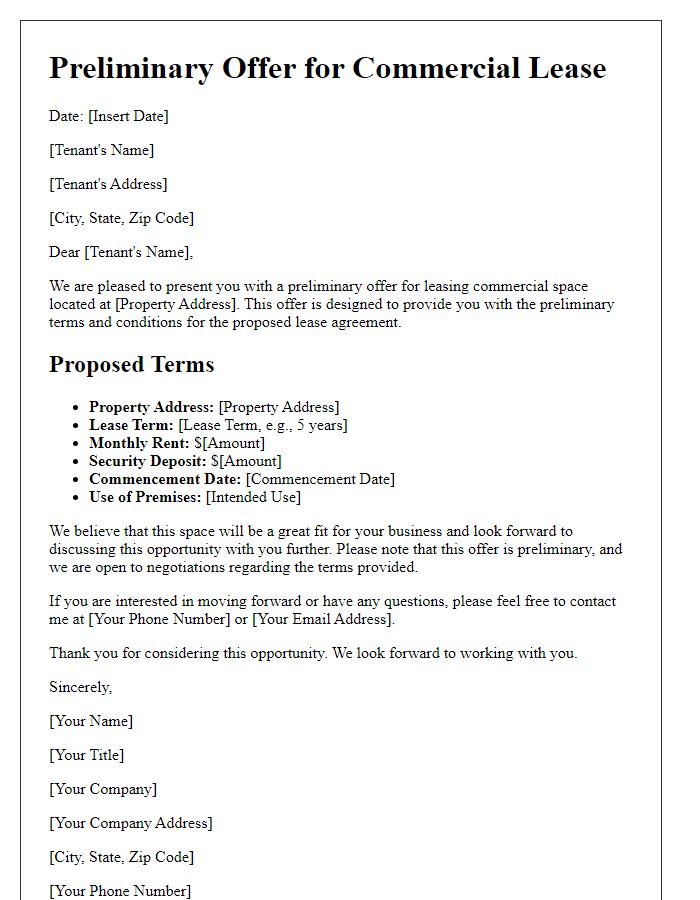

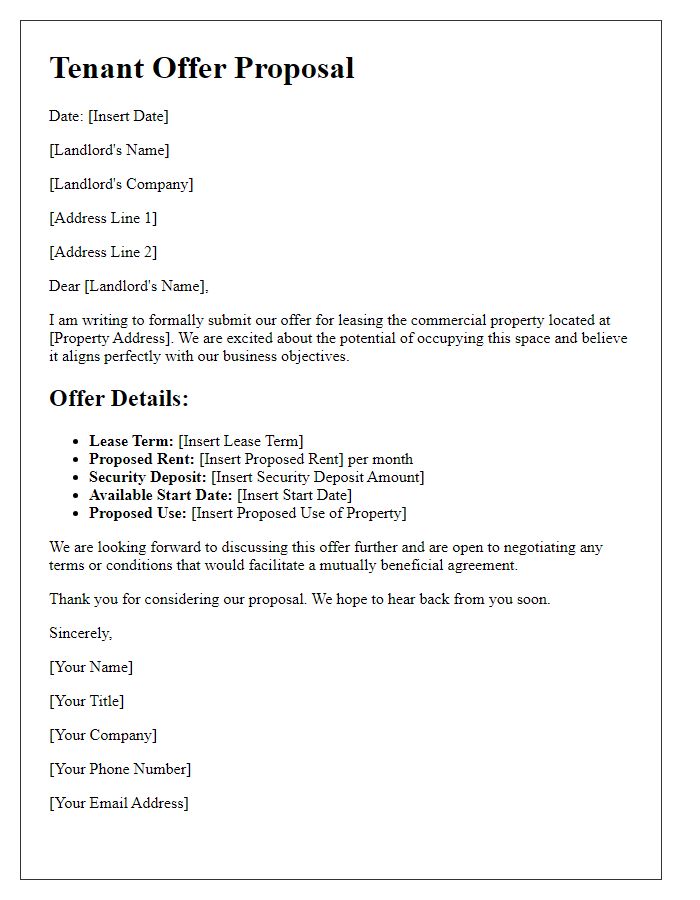
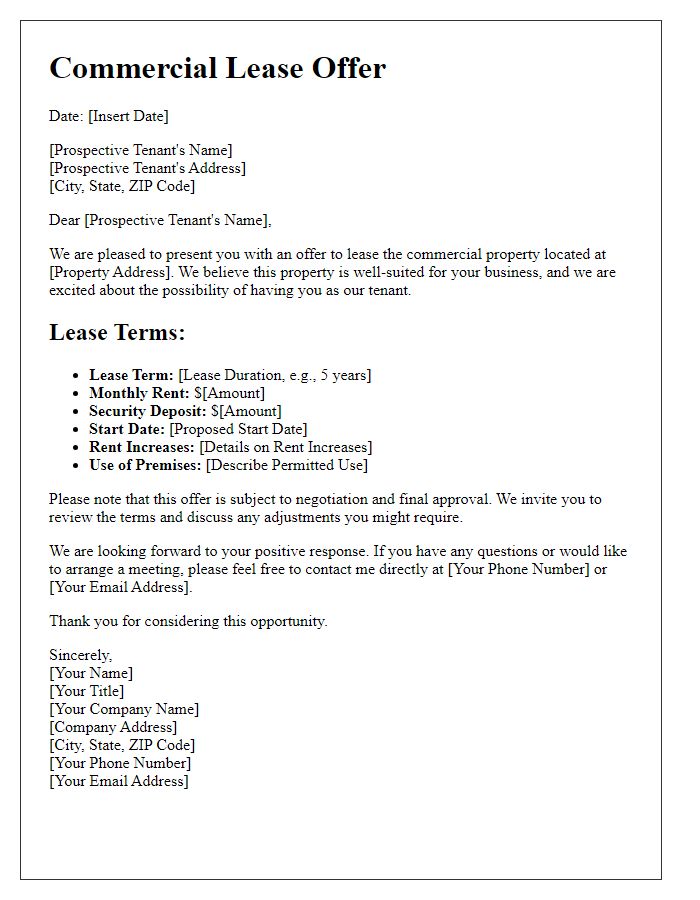
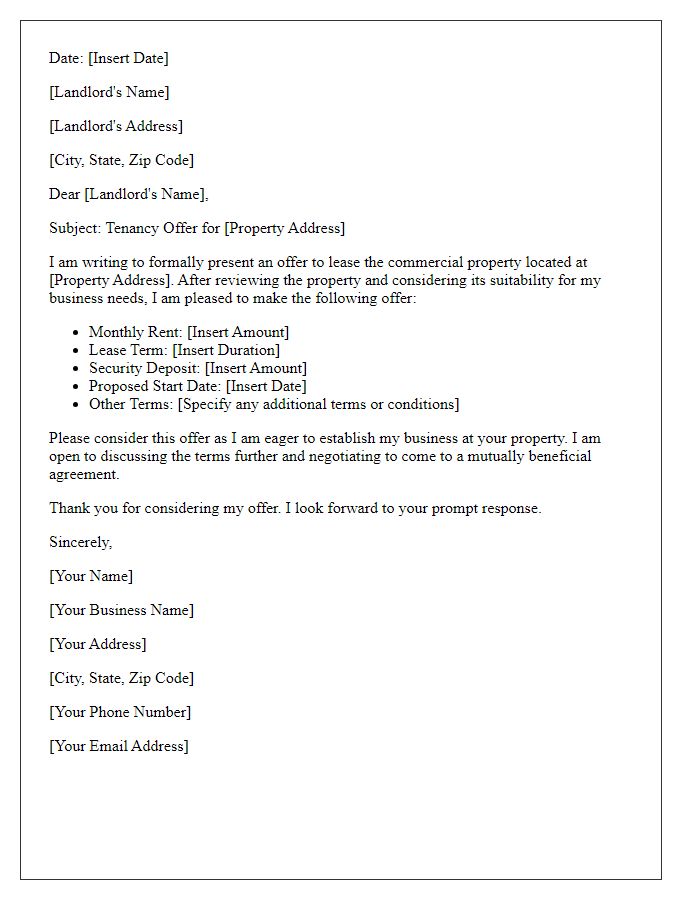
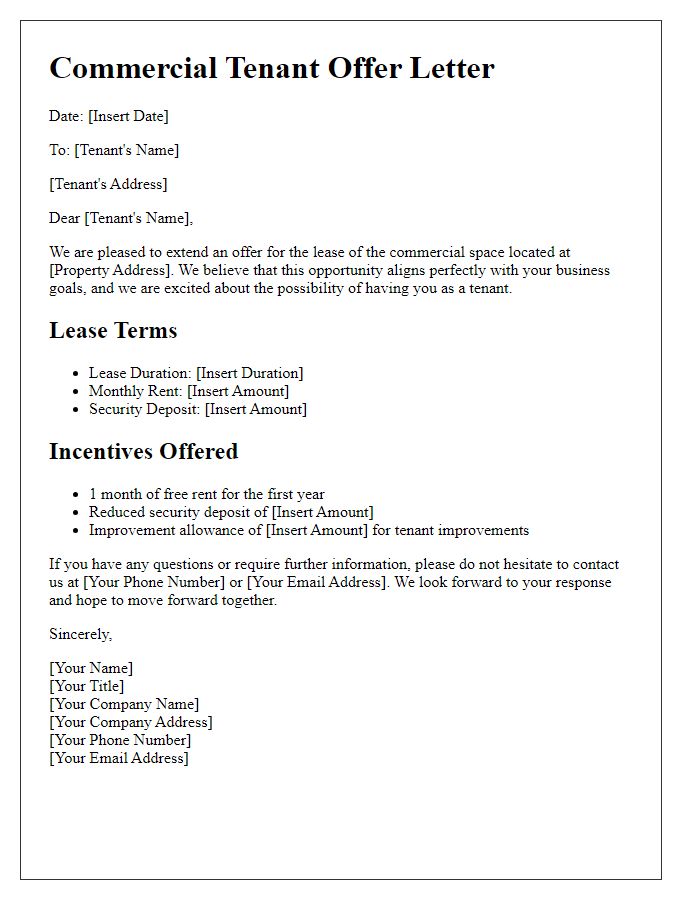
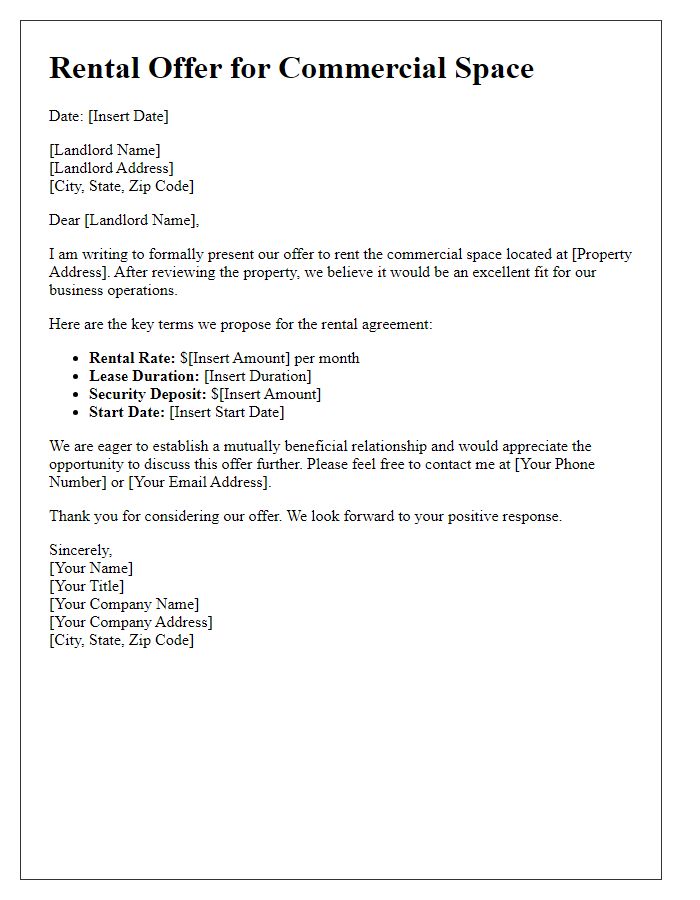
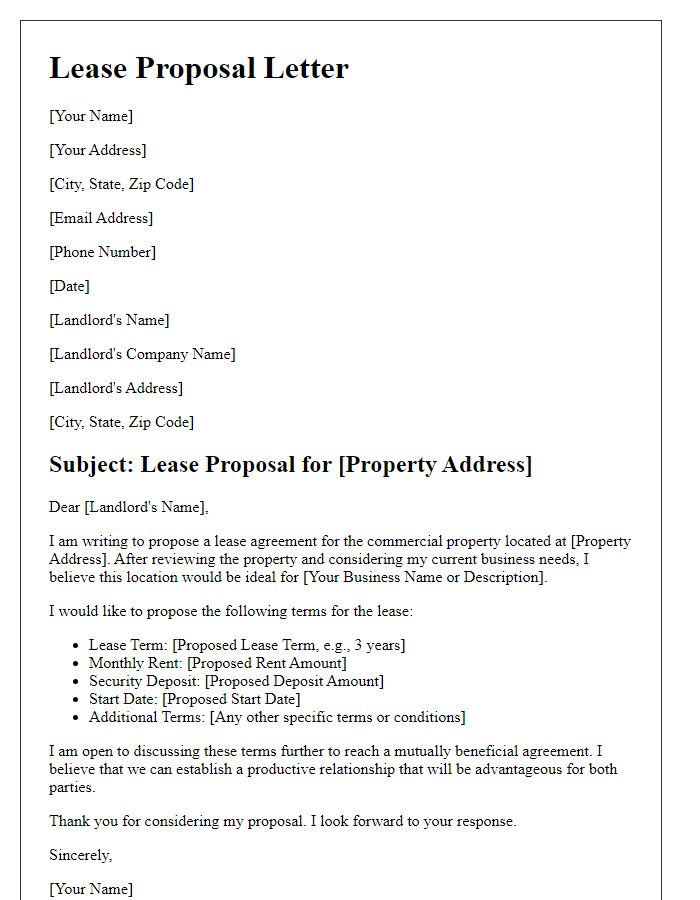
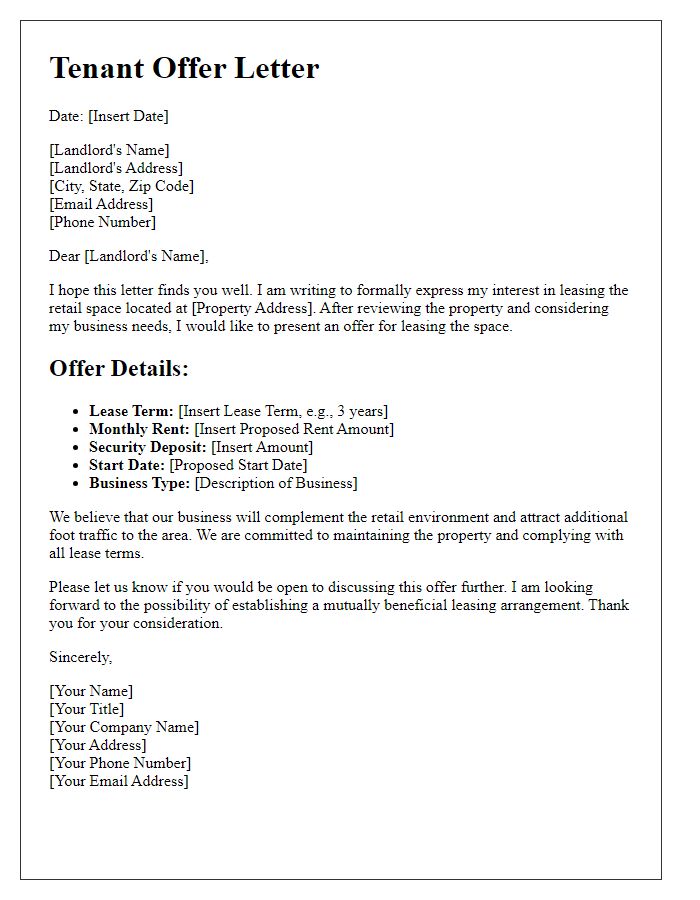
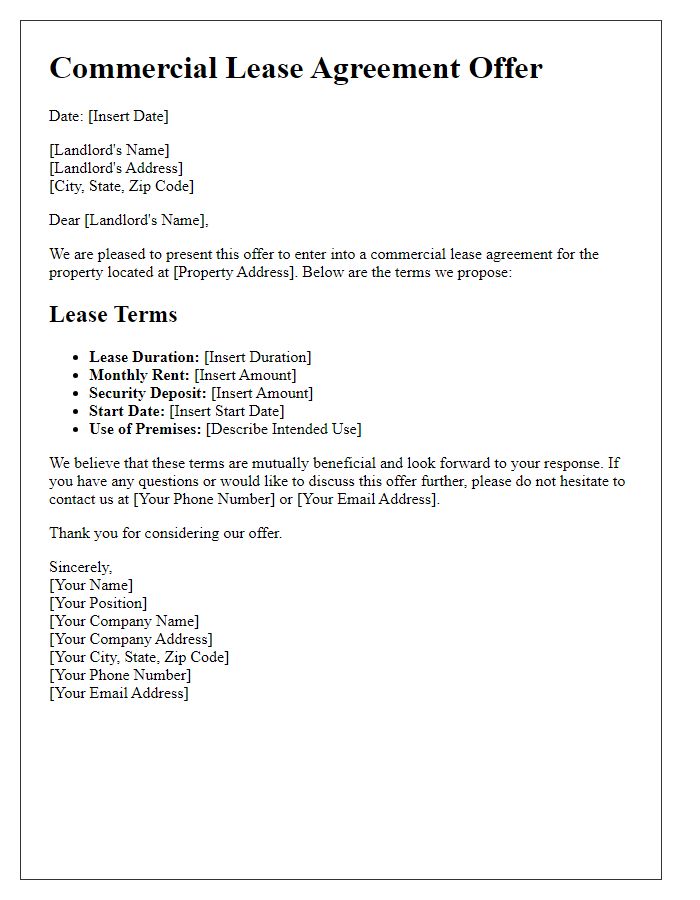
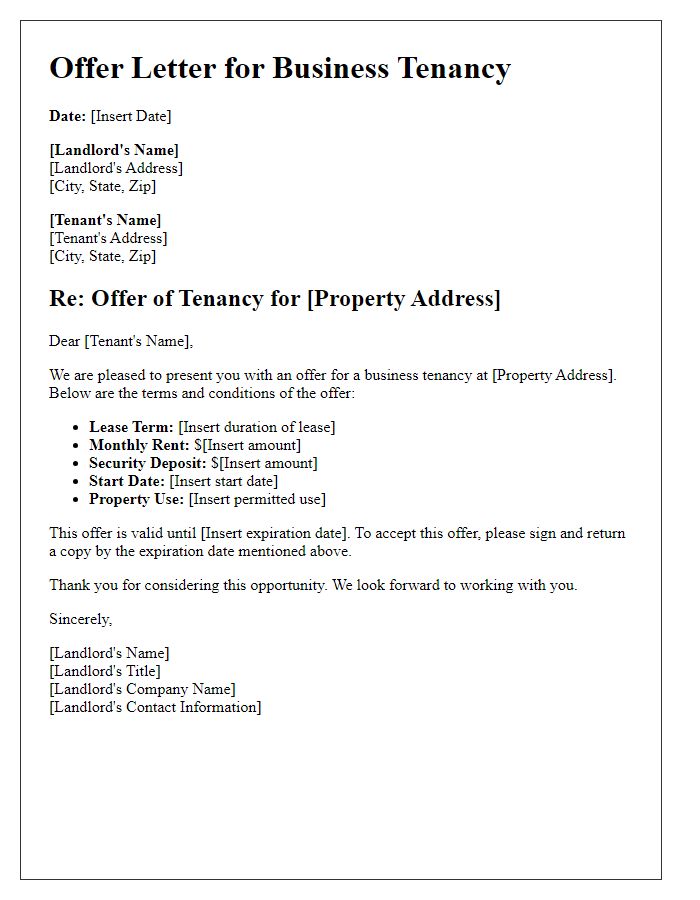


Comments